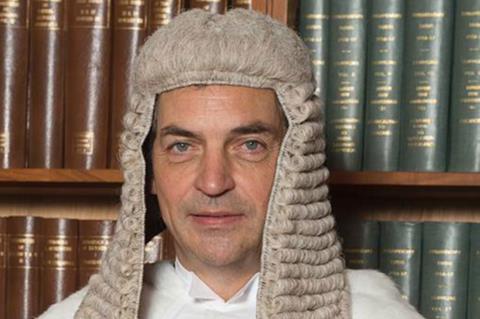Contempt proceedings against the self-proclaimed inventor of bitcoin for allegedly sharing the contents of a draft court judgment would not be in the public interest, judges ruled today. However Lord Justice Warby, sitting in the Divisional Court, found that a report submitted to the court by a law firm last summer and described as the only evidence for the 'prosecution' would have been admissible as evidence.
The proceedings arose from a libel action brought by computer scientist Dr Craig Wright against a blogger who had attacked Wright's claim to be 'Satoshi Nakamoto', the author of the seminal white paper which launched the bitcoin cryptocurrency. The claim succeeded, but Wright was awarded only nominal damages. After the draft judgment was circulated but before it was handed down, Wright posted messages on the Slack messaging platform which the opposing solicitors, RPC, said alluded to the judgment's contents.
When alerted to the apparent breach, Wright's solicitors, London crypto specialist Ontier, sent a report to the court which included the statement: 'Dr Wright does not believe that his posts on the Slack Channel breached the embargo and it was certainly not his intention to do so. However, to the extent that Dr Wright’s posts are or may be considered by the court to be a breach of the embargo, Dr Wright unreservedly apologises to the court and wishes to emphasise that any such breach was entirely unintentional and inadvertent.'
Mr Justice Chamberlain ruled last December that a breach may have been committed and ordered Wright to appear before a directions hearing. At that hearing, Mr Justice Nicklin heard that Wright intended to fight the criminal contempt charge, on grounds including the admissibility of the Ontier report.

This week's Divisional Court proceedings heard that Wright had submitted two affidavits to the court stating that Ontier was not acting on his instructions when it compiled its report and that its submission was in breach of legal professional privilege. He instructed criminal defence firm Janes Solicitors to act in the matter after Ontier came off the record.
In an extempore judgment delivered this morning, Warby said the court had since received a 'wealth of material' including a 17,000-word skeleton argument backed with authorities running to 1,600 pages. Despite this he ruled the Ontier report to be admissible. The court was bound to accept that Ontier had the authority to make the statement. 'In this case, all the circumstances point to the conclusion that the Ontier report was prepared and submitted to the court on the authority of Dr Wright.' He noted that Wright had remained silent on this point until last month.
A further argument, that admitting the Ontier report would infringe the right to silence, was also dismissed. He found the report to be admissible in either criminal or civil proceedings.
However while Wright has a case to answer, and notwithstanding the master of the rolls' warning on embargo breaches last year, Warby said that the court is required to deal with cases 'justly and at proportionate cost'. As a result of the 'change in parameters' in what had appeared a straightforward case, 'We have concluded that it is no longer in the public interest to pursue these proceedings.'
In the light of the apology in the Ontier report, Warby said: 'We are satisfied that Dr Wright is likely to appreciate how seriously the court takes these breaches.'
Tim Grey and Greg Callus, instructed by Janes Solicitors, appeared for Dr Craig Wright
This article is now closed for comment.





























3 Readers' comments